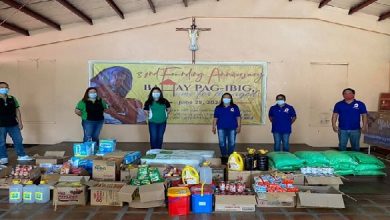
The shift to online learning for the school year 2020-2021 imposes a lot of challenges to teachers, parents, and students alike. Among these challenges, ensuring children’s online safety is the most critical. As a matter of fact, the Philippines ranks highly when it comes to online risks for children. According to Georges Dizon from Globe Business Enablement and Training Group, “The Philippines is a top source of child pornography. The country is likewise the second most dangerous online (or with high online risks) according to the DQ institute study in 2018.”
The Department of Education (DepEd) together with Globe has taken on this issue seriously through years-long collaboration to create a program to educate teachers and parents on online safety for students. Mervie Yap Seblos, Regional Chief, HRRD DepEd Region 12 said, “I’d like to thank Globe… there has been no letup in the programs and support that they provide. We are thankful that even back then, decades ago, when DepEd was not as advanced and aggressive in digital education, Globe has already been there helping us in initiating reforms and education.”
The Digital Thumbprint Program (DTP) is a series of workshops on digital citizenship, online safety, and the responsible use of the internet. With the push to online education, Globe modified the in-class DTP module into online modules tackled through a series of webinars under the Global Filipino Teacher Series. The webinars are streamed via Facebook Live at the Globe Bridging Communities Facebook page and the DepEd official Facebook page. In 2019, Globe turned over the face-to-face version of the Digital Thumbprint Program modules to DepEd for integration into the K-12 curriculum.

In one of the webinars, panel participant Sheila Estabillo, Manager of Cyber Safe Spaces Project of PLAN International Philippines gave her insights on online safety for children, “Teach kids about technology at a young age. Discuss the many benefits of technology as well as the risks. Discuss the importance of respecting privacy, protecting personal info, and being critical thinkers and (also) have empathy. Monitor what your kids are doing on the internet. And as parents or teachers, keep learning about this technology so we can keep up.”
Globe’s webinar series covers teachers and parents. In the teachers’ module, the focus is on critical thinking which is crucial for educators to ensure that the information they use for teaching is based on facts and properly cited with credible sources.
The parents’ module discusses responsible parenting in today’s digital world, especially amidst the pandemic which has pushed children to online activities like shopping, chatting, watching news, and learning. The risks for children involve cyberbullying, video game addiction, offline meetings, and online sexual behavior. “There should also be careful use of hashtags as predators use hashtags to look for victims online,” said Dizon.
The Global Filipino Teacher Series is open to all teaching and non-teaching staff of the Department of Education covering the National Office, Regional Offices, and Division Offices, and all public schools nationwide. To know more visit www.globe.com.ph.







